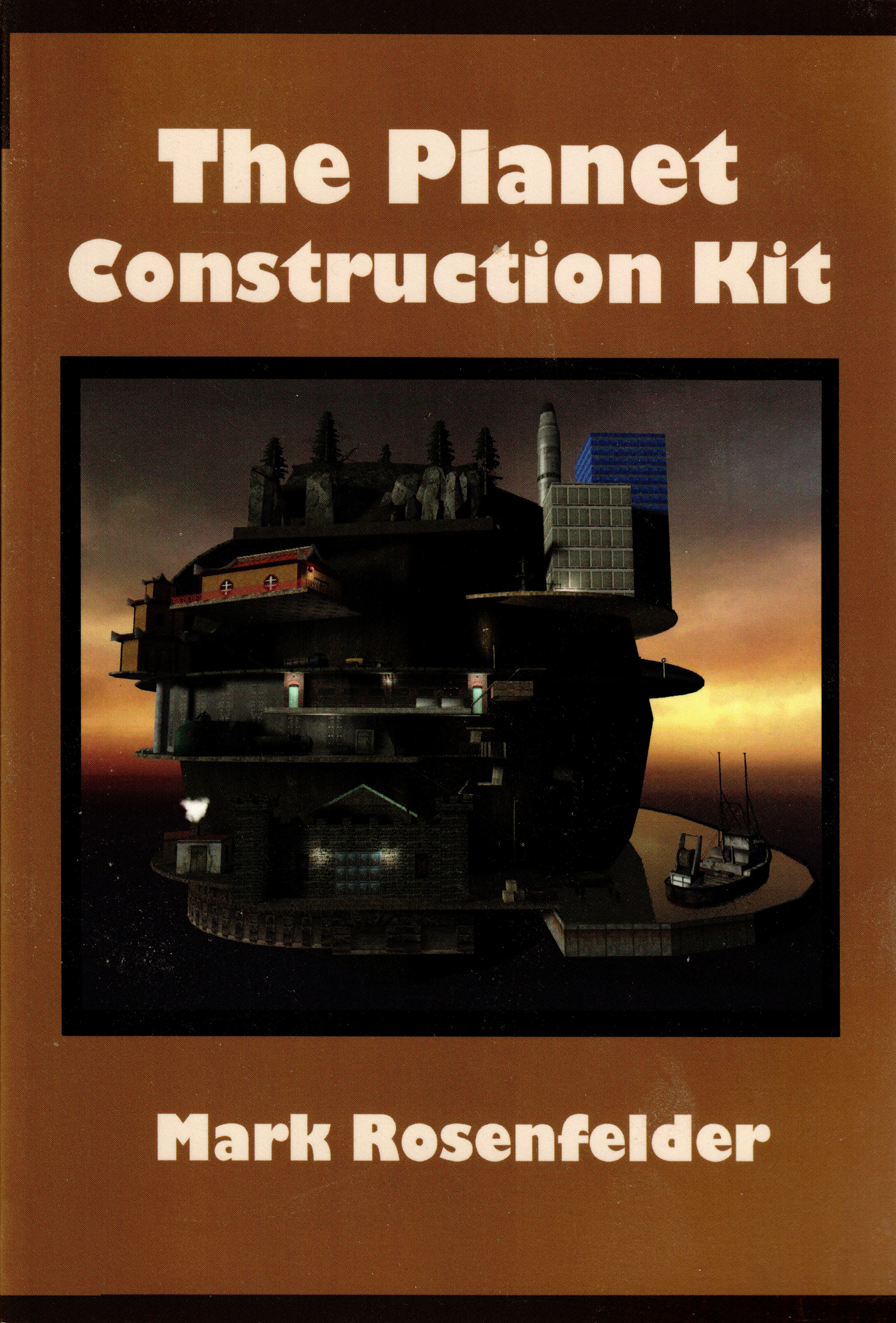The Planet Construction Kit
This article originally appeared in the July/August 2020 issue.
 The
Planet Construction Kit. Mark Rosenfelder.
The
Planet Construction Kit. Mark Rosenfelder.
Yonagu Books http://www.zompist.com/yonagu.html
371pp., Trade Paperback
US$14.95
The first thing I need to say about this is that it’s not light reading. Mr Rosenfelder takes his conworlding seriously, and this book is not only of nontrivial size, but densely packed with information. That said, he specifically says that it’s not necessary to do everything he describes, nor necessarily in as much detail as he describes: He is being ‘hyper-complete’ (my word, not his) so that you have the tool(s) available if you find you need or want them, not because you must use them all.
In the very first chapters, he focuses on the idea that you do worldbuilding because you have stories to tell, not for its own sake. He also emphasizes, with examples, that if some aspect of worldbuilding doesn’t add to the story, there’s no need to do more than just sketch it in, and maybe not even that much. Storytelling itself is also examined, and the reader is shown errors that conworlders often make, with examples of both good and bad storytelling.
The bulk of the book is a subject-by-subject treatment of many aspect of building a culture and the world it exists in – or perhaps building a world and the culture that exists in it. The treatments are not so in-depth as to make the topics ‘impenetrable’, but they are certainly more in-depth than any treatment in Traveller supplements to date, and some subjects that Traveller worldbuilding gives short shrift to (like culture or religion) or ignores entirely (like daily life or history) are given a good treatment here. Interactions between the various subjects are also covered, and illustrative references to both real and literary cultures are included (and literary references may be examples of good worldbuilding or bad). From the Table of Contents, the broad subjects that you get are, in order, E-Z Fantasy World, which focusses on a questionnaire for you to answer about the world you want to build; Storytelling, giving an overview of what’s involved in [good] storytelling, and how to apply this book to it; Astronomy and Geology, for understanding how the planet and its sun ‘relate’ and what a world’s climate zones will look like; Biology, discussing animals, ecosystems, agriculture, etc., and the relationships between them and the effect on societies that might develop; History of the culture(s), discussing how and why they got to where they are ‘today’; Culture, on the details of a society and its people’s relationships to each other; Daily Life, where you get to see how the previous chapter is applied to the individual; Religion and other belief systems, and how they affect a society’s thought processes and attitudes; Magic (which can actually be used as guidance to applying psionics to a society in Traveller); Technology from the most basic to the most advanced, and how to apply it to society; War, its reasons, attitudes toward it and those who do it, and so on; and the ‘cosmetic’ chapters of Making maps, Illustrations, and 3-D Modeling. The only worldbuilding topic that isn’t addressed in this volume is language, but Mr Rosenfelder has written four other books – each about the same size as this one – on that topic.
You’re not given all this information without guidance, however; remember that E-Z Fantasy World chapter, with the questions that you should ask yourself before you start working out the details – questions that will let you ‘get straight’ in your own mind what your target will look like. Other chapters have similar questions for you to work through to think about.
Mr Rosenfelder’s writing is clear, and not loaded with jargon (though some technical discussion is unavoidable). Examples (generally from the author’s own worldbuilding) are relevant, without a great deal of obscuring detail, and additional explanation and summary is provided where useful and appropriate. It is clear that the author has ‘done his homework’, and a (partial) list of his sources is included – many of which are also well-written and interesting books not aimed at the academic reader, but nevertheless informative.
This is definitely one book that should be on your bookshelf if you write or run RPGs in the SF or fantasy genre; I’ve yet to find a better guide to worldbuilding. Well worth the $14.95 and more.
 Freelance
Traveller
Freelance
Traveller